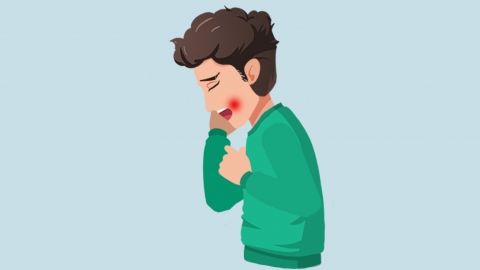What should I do for swollen and painful gums, and teeth that hurt even when touched?
Under normal circumstances, swollen and painful gums, along with tooth pain upon contact, may be caused by food impaction irritating the gums, improper brushing techniques damaging the gums, gingivitis, periapical periodontitis, or pericoronitis of wisdom teeth. It is recommended to seek medical attention promptly, identify the underlying cause, and improve symptoms under a doctor's guidance through general treatments, medications, or surgical interventions. Specific analyses are as follows:

1. Food impaction irritating the gums: Long-term food debris lodged between teeth can compress and irritate gum tissue, causing redness, swelling, and significant pain when touching the teeth. After meals, thoroughly clean the spaces between teeth using dental floss or interdental brushes, and rinse the mouth with warm salt water 2–3 times daily.
2. Gum damage due to improper brushing: Long-term use of hard-bristled toothbrushes or aggressive horizontal brushing can injure the gums and cervical areas of the teeth, leading to gum congestion, swelling, and increased pain when pressure is applied to the teeth. Switch to a soft-bristled toothbrush and adopt the Bass brushing technique gently, avoiding excessive force.
3. Gingivitis: Accumulation of dental plaque and tartar irritates the gums, triggering inflammation characterized by red, swollen gums, bleeding during brushing, and pain when touching the teeth. Patients should follow medical advice to use anti-inflammatory mouthwashes such as metronidazole mouthwash, compound chlorhexidine mouthwash, or tinidazole mouthwash.
4. Periapical periodontitis: When pulp infection spreads to the tissues around the tooth root apex, it causes gum swelling and pain near the apex, with severe pain during biting or touching the tooth. Patients should take antibiotics such as amoxicillin capsules, metronidazole tablets, or cefuroxime axetil tablets as prescribed to control infection, followed by root canal treatment to remove infected tissue from the root canal.
5. Pericoronitis of wisdom teeth: Incomplete eruption of wisdom teeth creates a blind pocket around the crown where food debris accumulates, leading to infection, gum swelling, and noticeable pain when touching the wisdom tooth or surrounding teeth. Patients should take infection-controlling medications such as cefixime dispersible tablets, ornidazole tablets, or azithromycin dispersible tablets as directed by a physician. After inflammation subsides, wisdom tooth extraction should be performed to eliminate the source of infection and prevent recurrence.
Maintain good oral hygiene in daily life and schedule regular dental check-ups and professional cleanings. Avoid chewing food with the affected tooth to reduce stress on it. Eat a light diet, avoid spicy and irritating foods, and consume more fresh fruits and vegetables rich in vitamins to strengthen gum resistance and promote recovery of oral health.









